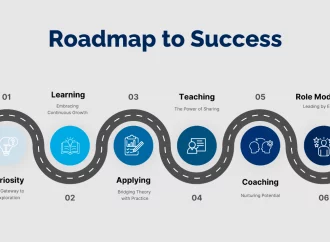Are you looking to secure your financial future and build generational wealth? Real estate investing can be a powerful tool to achieve these goals, but it also requires careful planning and strategic execution. In this blog post, we will share valuable tips and tricks for maximizing your returns in real estate investing. From identifying the
Are you looking to secure your financial future and build generational wealth? Real estate investing can be a powerful tool to achieve these goals, but it also requires careful planning and strategic execution. In this blog post, we will share valuable tips and tricks for maximizing your returns in real estate investing. From identifying the right properties to managing your portfolio effectively, our expert advice will help you navigate the complex world of real estate investment with confidence. So let’s dive in and start building a brighter financial future for yourself and generations to come!
What is real estate investing?
Real estate investing is a great way to build your wealth over time. By choosing the right properties and techniques, you can make a lot of money while keeping your risk low. Here are four tips for maximizing your returns in real estate:
1. Do Your Research
Before you invest in any property, make sure that it is the right fit for your goals and budget. Check out recent sales data, zoning laws, and other relevant information to get an idea of what properties are selling for in the area and how much capital you’ll need to invest.
2. Don’t Overlook Cash Flow & Returns on Invested Capital
Some of the best real estate investments are those that generate strong cash flow and high returns on invested capital (ROIC). Look for properties with high appreciation potential, good tenant populations, and low maintenance costs – all of which will create positive cash flow numbers. Additionally, focus on investment properties rather than flipping – this will allow you to keep more of your profits long-term.
3. Use Smart Property Management Techniques
A well-run property can generate significant passive income over time – so make sure to utilize smart property management techniques (such as proper insurance coverage and accurate reporting) to maximize potential revenue streams. This will help you avoid unnecessary expenses while also keeping your investment secure.
4. Keep Costs Low & Stick With Long-Term Loans & Properties
To keep costs low and increase your chances
The different types of real estate investments
When it comes to real estate investing, there are a variety of different ways to go about making money.
One option is to buy and hold property, which is known as cash flow investing. This type of investment allows you to take advantage of steady income streams while minimizing risk.
Another common real estate investment strategy is flipping houses. Here, you take an existing property that’s in need of repair or improvement and resell it quickly for a higher profit.
Finally, you can also invest in properties through mortgages. Doing this allows you to borrow money and use the money to purchase property outright or put down a down payment and then lend the property back to the bank. Each of these types of investments has its own set of pros and cons, so it’s important to do your research before making any decisions.
What are the benefits of real estate investing?
There are a number of reasons why real estate investing can be a great way to build wealth over time. Here are four key benefits:
1. Real estate is a stable investment – Unlike stock or bond investments, which can fluctuate in value, real estate is typically a more stable source of income. This means that you can count on making steady profits over time, regardless of the market conditions.
2. Real estate offers diversified exposure to the economy – One of the best things about investing in real estate is that it allows you to gain exposure to a wide range of different economic sectors and markets. This gives you greater flexibility when it comes to managing your portfolio and helps protect you from potential financial risks.
3. Real estate is an easy way to invest money – Compared to other types of investments, buying and selling real estate transactions don’t require a lot of up-front capital (in the form of cash or assets). This makes real estate an ideal choice for investors who want to make relatively small investments with the potential for big returns over time.
4. Real estate can be a great way to build wealth for future generations – Investing in real estate can help create generational wealth for your family members and loved ones by providing long-term stability and security in an increasingly volatile economy. By diversifying your investment portfolio into different asset classes, you can help ensure that your loved ones will have options when it comes time to pass on your wealth.
How to invest in real estate
There are a few things you can do to maximize your returns when investing in real estate.
1. Do Your Research
Before you invest in any property, make sure you understand the market and the area where it is located. This will help you identify opportunities that are likely to be profitable.
2. Invest in Quality Properties
Don’t just purchase any property that comes your way – make sure it is of high quality and meets your investment goals. This will reduce the risk of losing money on your investment, and increase its chances of returning a greater amount of capital over time.
3. Stay Flexible
Keep an open mind when scouting for properties – if something catches your eye, don’t hesitate to investigate further! Be prepared to make changes as needed in order to find properties that fit your investment criteria and meet your satisfaction level.
4. Diversify Your Investments
Investing in real estate isn’t a one-size-fits-all proposition – rather, stick to properties that match your specific financial needs and objectives. By doing so, you’re less likely to experience significant losses or gains on any one investment, which will lead to overall greater returns down the road.
Tips for buying a home
Buying a home is one of the largest investments you’ll ever make, and it’s important to do your research before making any decisions. Here are some tips for buying a home that will help you maximize your returns:
1. Do your homework: When you’re researching properties, be sure to read all the details—from the square footage to the current condition of the property. This will give you an accurate idea of what you’re getting yourself into and help ensure that you’re making an informed decision.
2. Get pre-approved: Before you put in an offer on a property, make sure that you have pre-approved financing. This will allow you to get a good rate and avoid unnecessary delays in closing.
3. Stick to your budget: When it comes to budgeting for a home purchase, don’t let yourself become overwhelmed by sticker shock. Remember that there are plenty of options available within your budget range—even if those options aren’t exactly what you had envisioned initially.
4. Don’t overspend: One common mistake made when purchasing a home is overspending on repairs or upgrades that may not be necessary. Make sure to stick to your original budgeted amount so that you’re not stuck with extra debt later on down the road.
5. Be patient: While it’s tempting to buy right away, waiting can often result in less pricey properties and faster closings—and that’s always worth considering!
Tips for selling a home
When selling your home, always be mindful of pricing and staging. Be realistic about what you can expect to receive for your home, and make sure it’s priced appropriately based on market trends. Use staging to accentuate key features of your home and make it more appealing to potential buyers.
If you have a pre-made listing with a real estate agent, be sure to provide them with all the necessary information including photos, floor plans and copies of the relevant documents. If you’re selling your home yourself, be prepared to put in a lot of effort – including finding quality MLS listings, preparing brochures and marketing materials, conducting open houses and meeting with buyers face-to-face.
Make use of online tools such as Realtor.com®, Zillow® Home Value Index® and Trulia® to research market trends and find comparable properties for sale. Once you’ve determined an estimated price range for your home, add up all expenses associated with selling (such as advertising, staging, etc.) and subtract that from the estimated gross sales value to get your net proceeds. Take into account any down payment assistance or other financing options available to you before finalizing your sale figures.
Lastly, take care of yourself while selling – wear sunscreen, drink plenty of water and eat nutritious foods so you don’t get sick during the long process. And if there are any unforeseen problems along the way (such as a buyer withdrawing), know how to deal with them gracefully
Conclusion
There are a lot of things you can do to maximize your returns when it comes to real estate investing, but there are also a few key tips and tricks that will help you hit the ground running. Whether you’re just getting started or looking to grow your portfolio over time, these tips can help you achieve success. So what are you waiting for? Start learning about real estate and start making some serious returns today!





















Leave a Comment
Your email address will not be published. Required fields are marked with *